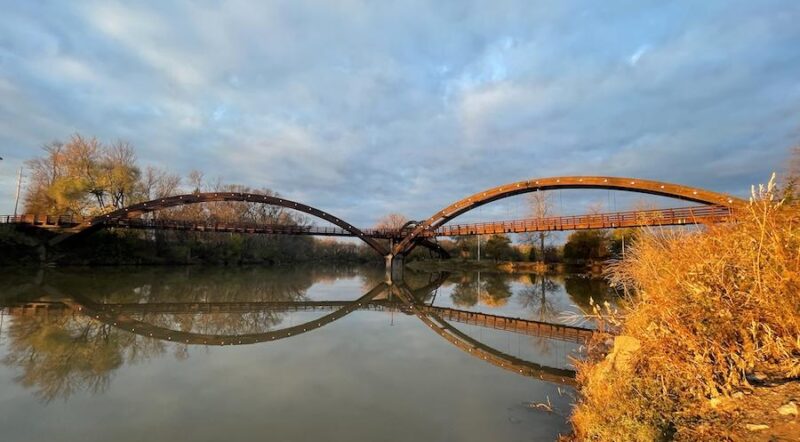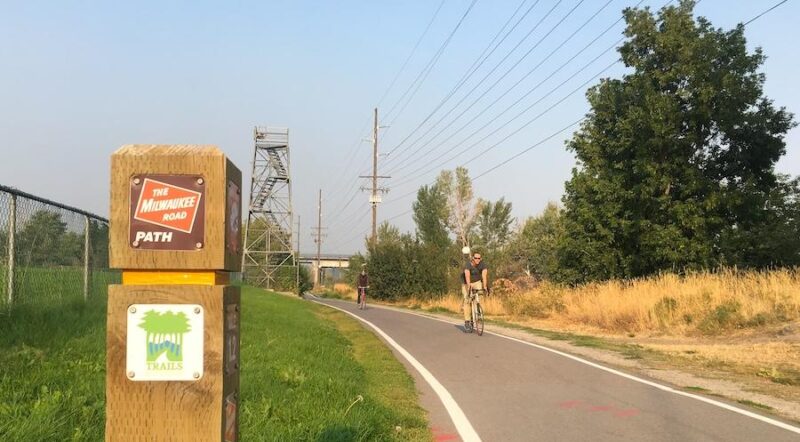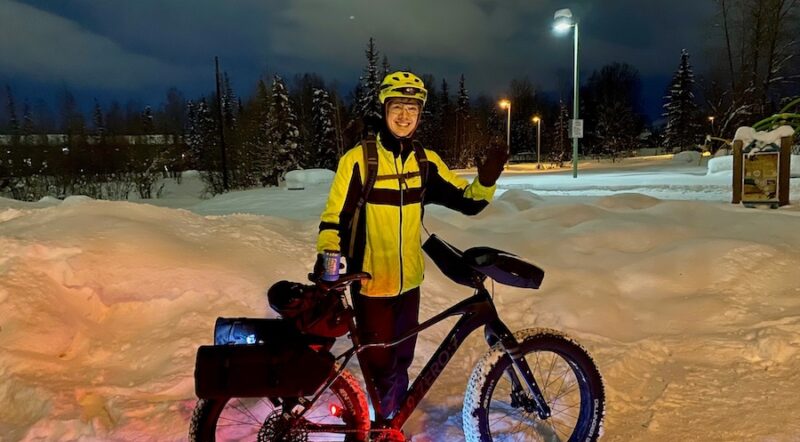House Committee Passes Reconciliation Bill Prioritizing Funding for Equity and Climate Reforms that Bolster Active Transportation
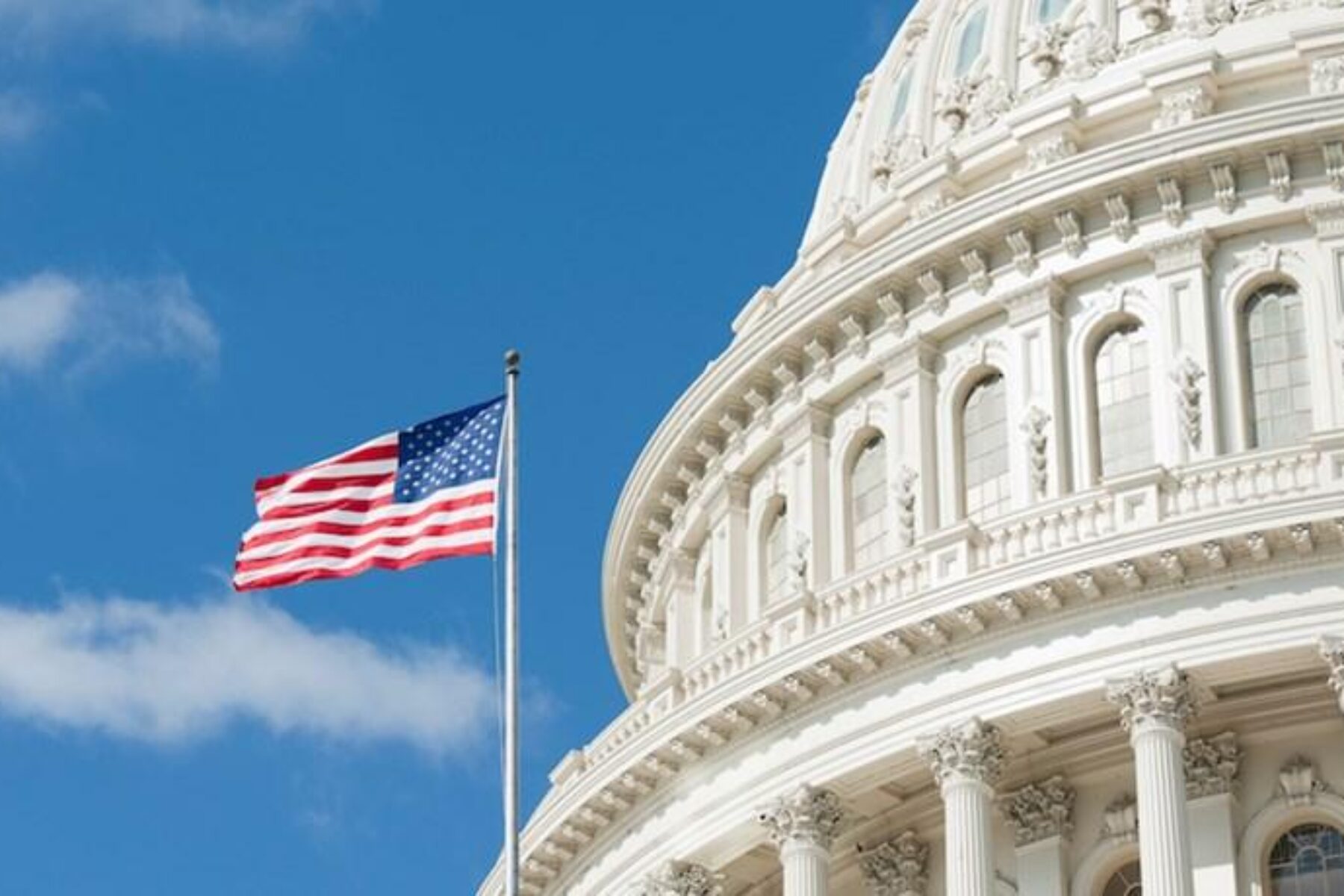
Today, the House Committee on Transportation & Infrastructure (T&I) passed its $60 billion title of the budget reconciliation bill, restoring critical funding for equity and climate reforms, and bringing added opportunity for active transportation. This bill makes trail and active transportation networks eligible to take advantage of exciting new funding pots, although the funding is not dedicated; these projects will need to compete against other types of investments.
This bill represents an admirable effort by the T&I Committee and House Democrats to re-establish key principles of the House surface transportation bill, the Invest in America Act (H.R.3684), that are essential to delivering significant climate and community benefits as part of the Democrats’ “Build Back Better” agenda, but that were lost in the process to create a bipartisan infrastructure bill in the Senate.
Related: Bipartisan Infrastructure Deal Misses Opportunity to Prioritize Walking and Biking as Essential
Among the unfinished business that the T&I Committee’s reconciliation bill seeks to address is funding for a new program establishing active-transportation connectivity grants, RTC’s top legislative priority.
Right now, it’s critical that we tell Capitol Hill Democrats that passing a reconciliation bill that builds equity and climate solutions into transportation policy is essential to the success of the party’s vow to “Build Back Better.”
Neighborhood Access and Equity Grants
The T&I Committee’s reconciliation bill addresses this with $4 billion for Neighborhood Access and Equity Grants (section 110003). Regional active-transportation networks and spines connecting between communities would be eligible for this money, explicitly creating a funding mechanism for active-transportation connectivity grants. These grants can fund projects designed to strategically connect trail and active transportation systems, making it safer and more convenient for people to walk and bike where they need to go—and providing the infrastructure required to inspire the mode shift necessary to deliver significant climate and community benefits.
Other eligibilities in this section include funds for the removal of highways bisecting neighborhoods and mitigation of the negative impacts of transportation facilities. At least 40% of these funds must be invested in disadvantaged or underserved communities, and in these communities, no local match is required.
Also exciting in this section is the inclusion of another proposal that RTC has championed: resources to expand public participation in transportation planning by individuals or organizations in disadvantaged or underserved communities, including support for community-based nonprofits that partner with governments to ensure credible community engagement.
Community Climate Incentive Grants
Another section that would elevate active transportation options is Community Climate Incentive Grants (section 110002), in which $3 billion is provided for competitive grants to local governments, metropolitan planning organizations and other nonstate entities to reduce carbon emissions by, among other things, providing zero-emission transportation options and reducing dependence on single-occupant vehicle trips. This section also grants $50 million to the Federal Highway Administration to develop performance measures and incentives to reduce emissions, and $950 million in performance incentives to states.
Additional sections of the bill, summarized here, provide other opportunities for trails and active transportation:
- Local surface transportation priorities receive $6 billion from the U.S. Department of Transportation (section 110008).
- Housing and Urban Development grants provide transit access for affordable housing, including walking and biking access to transit (section 110001).
- The Tribal Transportation Program (section 110004) receives $1 billion in additional funding; walking and biking are eligible.
- Clearinghouses are created to address equitable enforcement in traffic safety (section 110006) and automated vehicle and mobility innovation (section 110007).
What’s Next
Inclusion of these ideas and funding categories in the final reconciliation bill is not assured, especially given that the overarching politics are likely to lead to a substantial downsizing of the reconciliation bill. Our advocacy focus for the budget reconciliation bill is on Democrats because the bill has been designed to pass on a party line vote. In the Senate, the reconciliation bill faces tougher rules and no margin for Democrats to defect. Careful political balancing will be required to shepherd it through the process while winning a House majority to support the bipartisan infrastructure bill. The fates of these two bills are linked.
Right now, it’s critical that we tell Capitol Hill Democrats that passing a reconciliation bill that builds equity and climate solutions into transportation policy is essential to the success of the party’s vow to “Build Back Better.”
This is what it will take to have a meaningful impact on the nation’s active transportation system, and to deliver significant community and climate benefits.
As good as the transportation title of the reconciliation bill is, what it doesn’t deliver is dedicated funding for trail and active transportation networks. This funding is critical to quickly create safe and convenient walking and biking routes. While active-transportation connectivity grants are authorized in the Senate’s Infrastructure Investment and Jobs Act, dedicated funding for the program is the unfinished business of these expansive infrastructure negotiations. We will be working to secure funding through the annual appropriations process and will continue to seek your support in amplifying this need.
Thanks for all that you do for trails, walking and biking. Bringing equity and climate back to the fore will ensure a more successful and balanced federal transportation policy.
It’s an important time to make yourself heard.
TAKE ACTION
Please tell House and Senate Democrats with whom you have worked that passing a reconciliation bill that builds equity and climate solutions into transportation policy is essential to the success of the party’s vow to “Build Back Better”—and to the health of our communities and the planet.
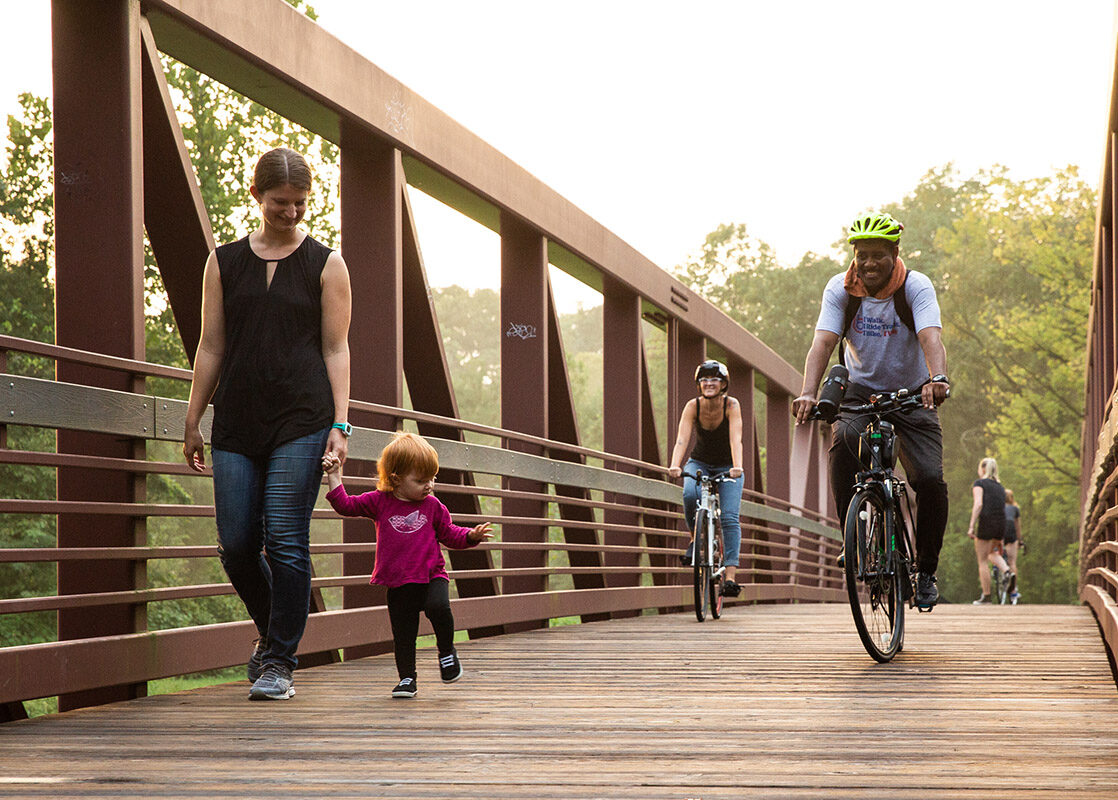
Donate
Everyone deserves access to safe ways to walk, bike, and be active outdoors.

